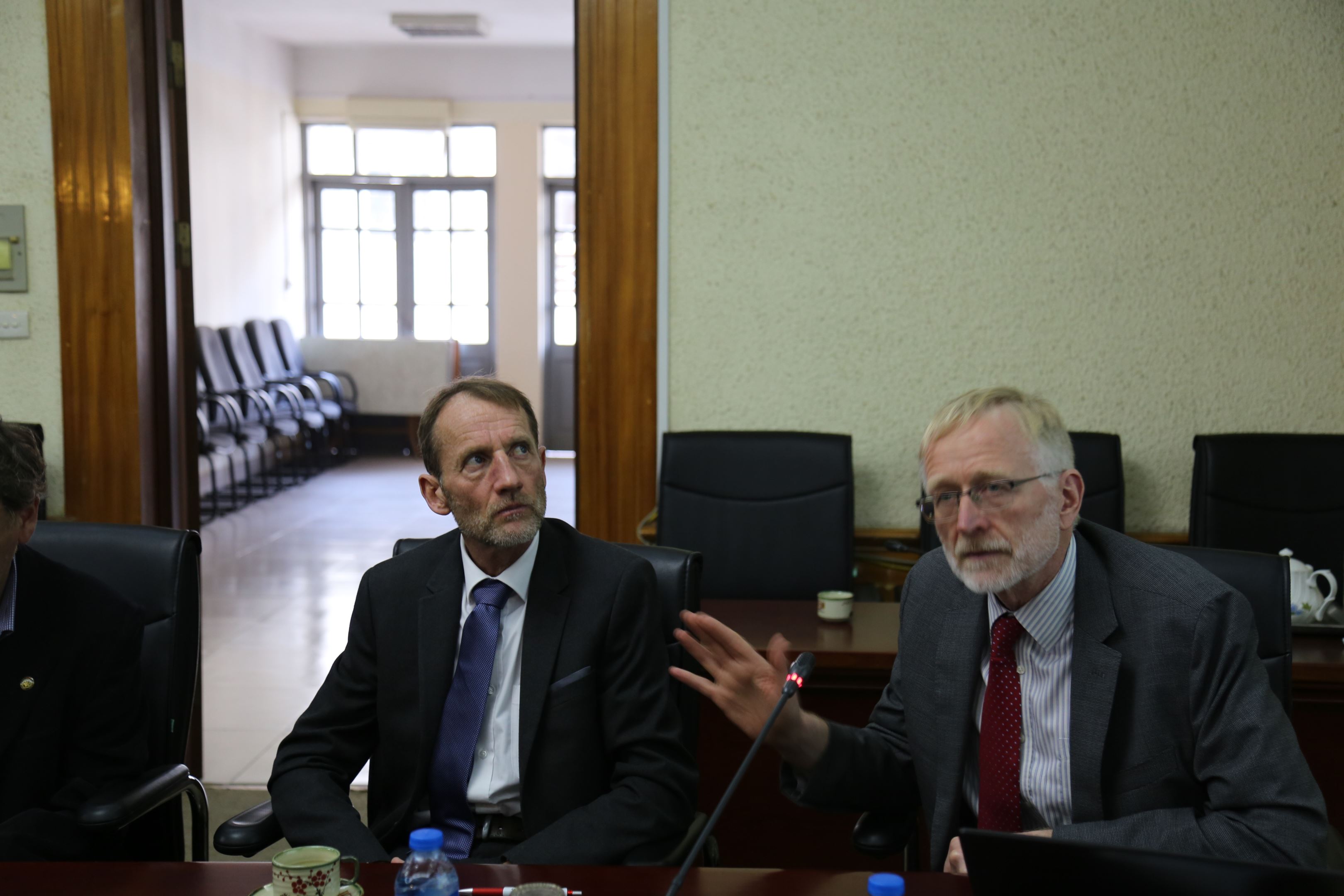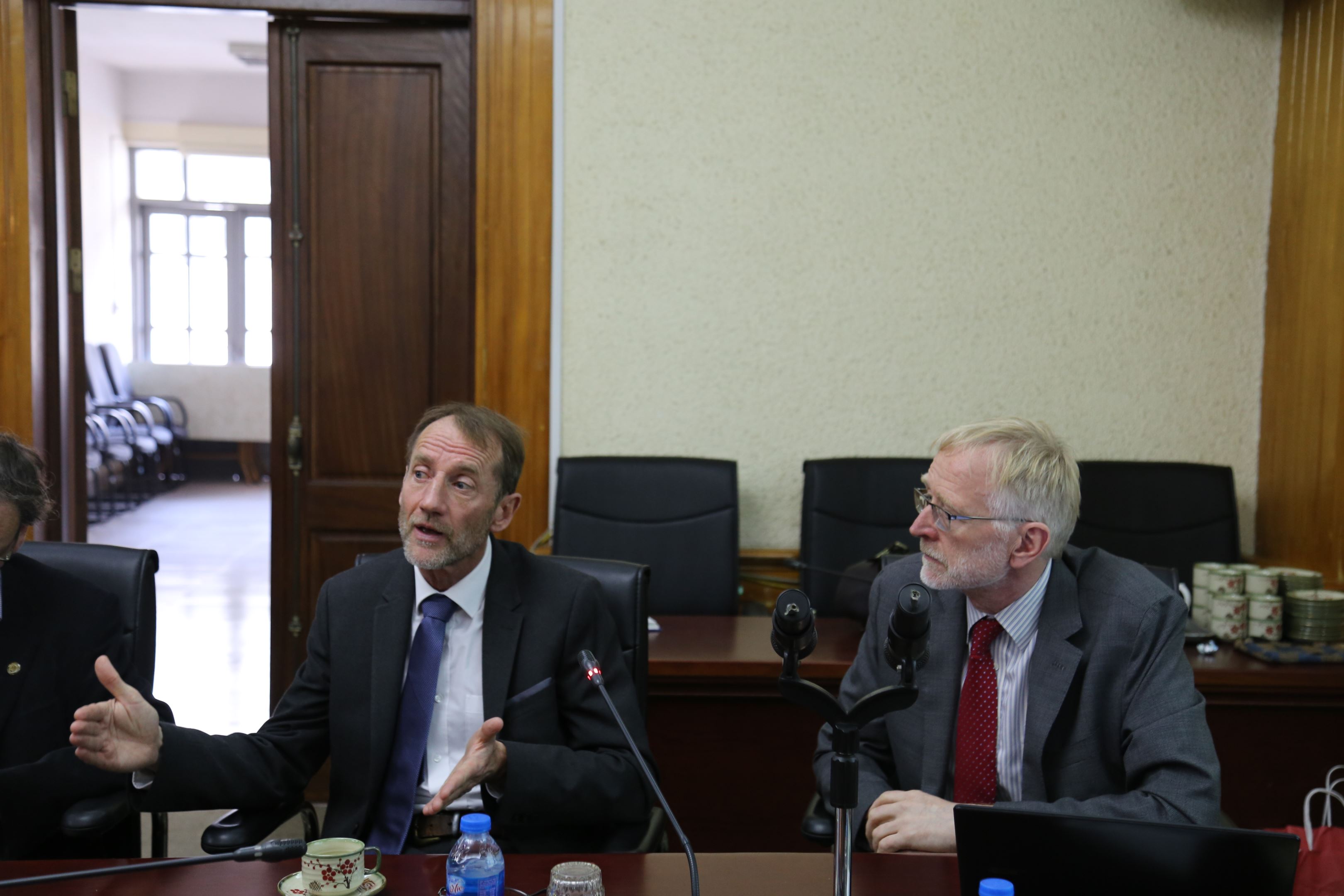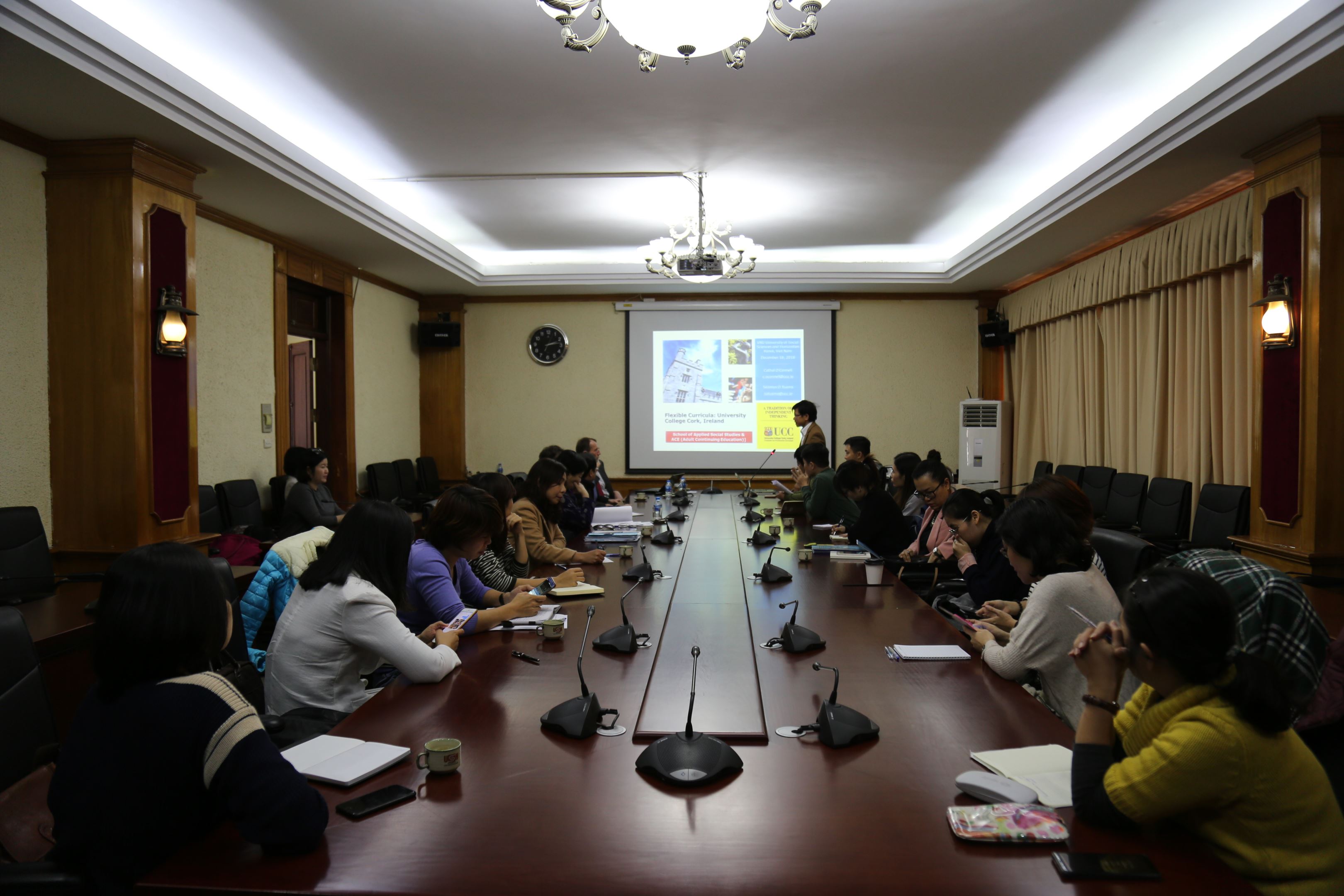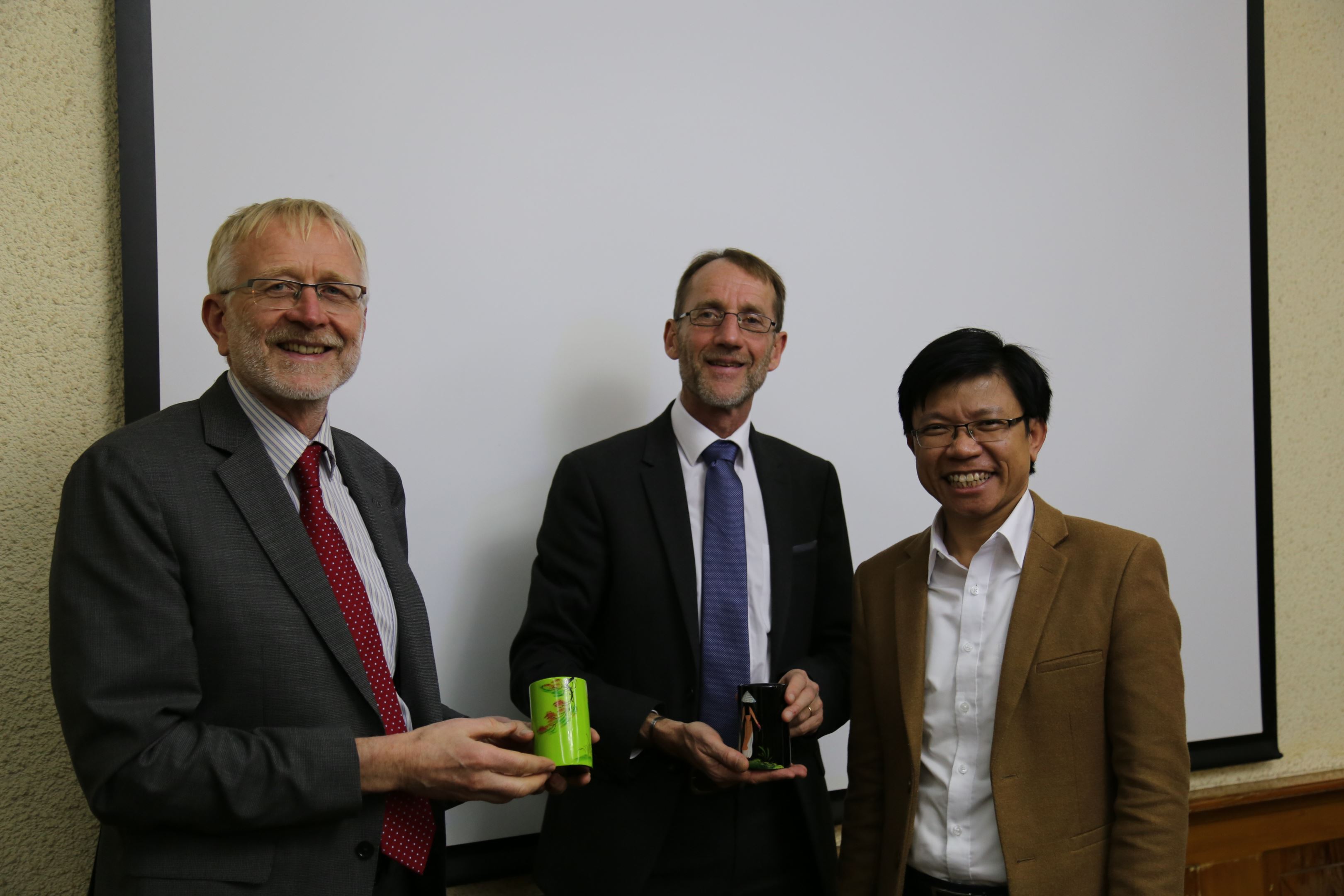In the first presentation, Dr. Séamus Ó Tuama and Dr. Cathal O'Connell introduced the training model of two educational units at University College Cork (UCC): the School of Applied Social Studies (SASS) and the Centre for Continuing Adult Education (ACE). Thereby, they conveyed the message about the role of universities as places to form, synthesize, disseminate and apply knowledge.
Although they were founded at different times (SASS in 1946, ACE in 1990), they share a common mission of creating opportunities for non-traditional learners. These are individuals who have difficulty accessing higher education, such as non-graduates, the elderly, people with disabilities, working people, etc. In addition, SASS and ACE create conditions for students to make rapid progress in their studies, thereby bringing benefits to individuals, communities and the economy. This flexibility is created by three factors: the European Credit Transfer System, the National Learning Quality Framework, and the Universities Act 1997.

Dr. Séamus Ó Tuama presents
The European Credit Transfer System (ECTS) allows students to transfer credits earned at one university/country to another. ECTS is compatible with a wide range of qualifications, from certificates to masters and doctorates. ECTS is also internationally recognized and serves as a common standard for many fields of study and training institutions. The National Framework for Learning Quality (NFQ) is a common mechanism for assessing learning in Ireland. NFQ consists of 10 levels, with higher education starting at level 7. What is unique about this mechanism is that it allows students to study at many different educational institutions while still completing the levels of study. Therefore, the assessment of learning outcomes will not depend much on a particular institution. Finally, the Universities Act 1997 gives Irish universities relative autonomy in various areas, including curriculum development.

Dr. Cathal O'Connell presents
With these advantages, SASS and ACE in particular, and UCC in general, have created flexibility in training programs. For example, at UCC, ECTS is applied to training programs at three different levels. At the certificate level, students can choose a 2-year program (60 credits) and a 1-year program (30 credits); at the bachelor level, it is a 3-year program (180 credits) or a 4-year program (240 credits); at the master level, it is a 2-year program (120 credits) and a 1-year program (60 credits). A specific example is the Social Sciences major. Instead of studying a 3-year bachelor program (180 credits), students can complete 60 credits of this major at the certificate level - part-time, then transfer to the bachelor level and complete the remaining 120 credits. If students do not want to continue with their bachelor's degree, they can earn a part-time Social Science certificate and find employment immediately. This creates more opportunities for non-traditional students.
In addition to training, SASS and ACE also implement a variety of flexible research programs in the fields of social policy, social work, employment development and community. The aim is to connect and call for the participation of local communities in academic research. For example, the Community-Academic Research Links (CARL) program is an initiative to support independent research by civil society organizations, such as community and volunteer groups. Students will conduct non-profit research with the support of local partners in various sectors.

In his second presentation, Dr. Séamus Ó Tuama introduced the “Learning Cities” Project in Cork. The Project’s steering committee consists of Cork City Council, University College Cork and the City’s Department of Education and Training. Cork is the third city after Beijing (China) and Mexico (Mexico) chosen by UNESCO to host the Learning Cities Conference in 2017. With the motto “Leave no one behind”, the project aims to use lifelong learning as a tool to improve connectivity, recognition and social life.
Through the organization of Lifelong Learning Festivals (held annually in Cork), and the development of learning neighborhoods (piloted in Ballyphehane and Knocknaheeny), the Project wants to bring the spirit of learning to all levels of society, aiming to bring cooperation and dialogue beyond the framework of traditional, academic education. For example, at Lifelong Learning Festivals, people not only learn through seminars and academic discussions, but also through other activities such as art performances, cooking, exhibitions, reading books, etc.

Associate Professor Dr. Hoang Anh Tuan presented souvenirs to two speakers
After the presentation, Dr. Séamus Ó Tuama and Dr. Cathal O'Connell received questions and comments from the audience about the job opportunities of UCC students; the difference between the credit training system at UCC in particular and Europe in general with Asian universities; experience in connecting the community in building training and research programs; the relationship between the philosophy of lifelong learning with higher education and education in general...
Author:Tran Minh
Newer news
Older news